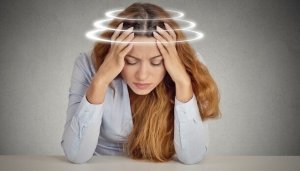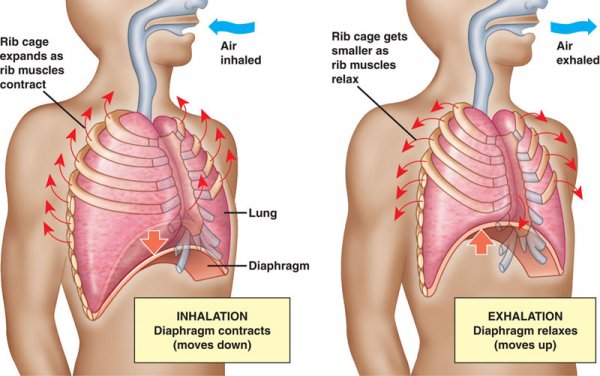How to Solve Frequent Dizziness Caused by Anxiety

Recent studies have shown that anxiety can cause dizziness. This dizziness is also one of the most frustrating symptoms. You feel like you don’t have control over your body, like weakness is taking over you, and like you’ll faint at any second.
Anxiety is one of the most common problems and, at the same time, one of the least explored ones. In recent years, it’s become a constant companion for a large part of the population. Beyond all the emotional distress it causes, it can also bring with it some worrying physical issues.
Anxiety can cause dizziness, and it can be so strong that you end up nauseous and vomiting. It can stop your digestive system from working properly and can even create issues in your respiratory and circulatory systems. The real problem is that a lot of people don’t realize those issues are caused by anxiety. They usually assume it has to do with some other medical condition. That’s why so many people take the wrong steps to solve them.
“No passion so effectually robs the mind of all its powers of acting and reasoning as fear.“
-Edmund Burke-

The characteristics of dizziness caused by anxiety
When we talk about dizziness, we mean the state where you feel like everything is spinning around you. Although in Old English the word meant something along the lines of “stupid”, now it means spinning sensation. It means feeling completely unstable on whatever surface you’re on, like you’re going to fall off the world.
This means that dizziness also involves a sudden feeling of vertigo, the spinning, moving part of it. It also feels like your brain can’t function or that you’re in some kind of unreal version of the world. You feel completely present, but it’s like you’re in a dreamland.
You can also feel that your muscles have gone limp. A lot of other times your vision will go blurry, your thoughts will slow down, and you’ll feel uncomfortable all over. In serious cases, dizziness can even make you faint.
Anxiety causes dizziness
Keep in mind that anxiety is a mental state that also has physical symptoms. It’s a reaction you have when you feel exposed to some danger or when you feel like the victim of some attack. You react this way without there actually being any danger or any attack. But unfortunately, you still experience things as if there were.
Anxiety attacks usually happen in today’s world because society pushes us too hard. Society demands more than what you’re able to give.
You have to adjust to conditions or rules that completely hinder your ability to respond. You feel attacked by distress because you’re trying to respond to these demands. That means you have to make a huge effort, and that’s where anxiety comes around.
In some cases, dizziness is a sign that anxiety is present and active in your life. It can come about after a relatively long period of not dealing with stressful situations. Most of the time it comes around suddenly, without any prior warning. On top of that, it’s not necessarily related to any current stress you have.
Identifying and solving the problem
The hardest part about all this is the fact that dizziness is also a symptom of all kinds of illnesses and conditions. That’s why it’s so hard to pinpoint anxiety as the source of the problem. So how do you figure out if anxiety is what’s causing your dizziness or if it’s something else entirely?

When dizziness is caused by a nervous problem, there are some things that can help you identify it. Normally, the first thing you feel is muscle tension. Your respiratory rate and heart rate will also skyrocket.
This makes it so that your body needs more oxygen. If this state lasts for a while, your body will get weak very quickly. Your muscles will lose strength, your brain will slow down, and then the dizziness will come.
When you notice that muscle tension and agitation have appeared for no real reason and then you get dizzy, it’s probably from anxiety. The best way to prevent these kinds of issues or manage them is to control your breathing. One of the best ways to do that is by practicing diaphragmatic breathing.
It’s also a good idea to control your thoughts. This will help you stop looking at every stressful situation as a life or death matter. Anxiety only causes dizziness when it’s extremely intense. If it’s happening to you, here’s another article that might be worth reading.
This text is provided for informational purposes only and does not replace consultation with a professional. If in doubt, consult your specialist.








